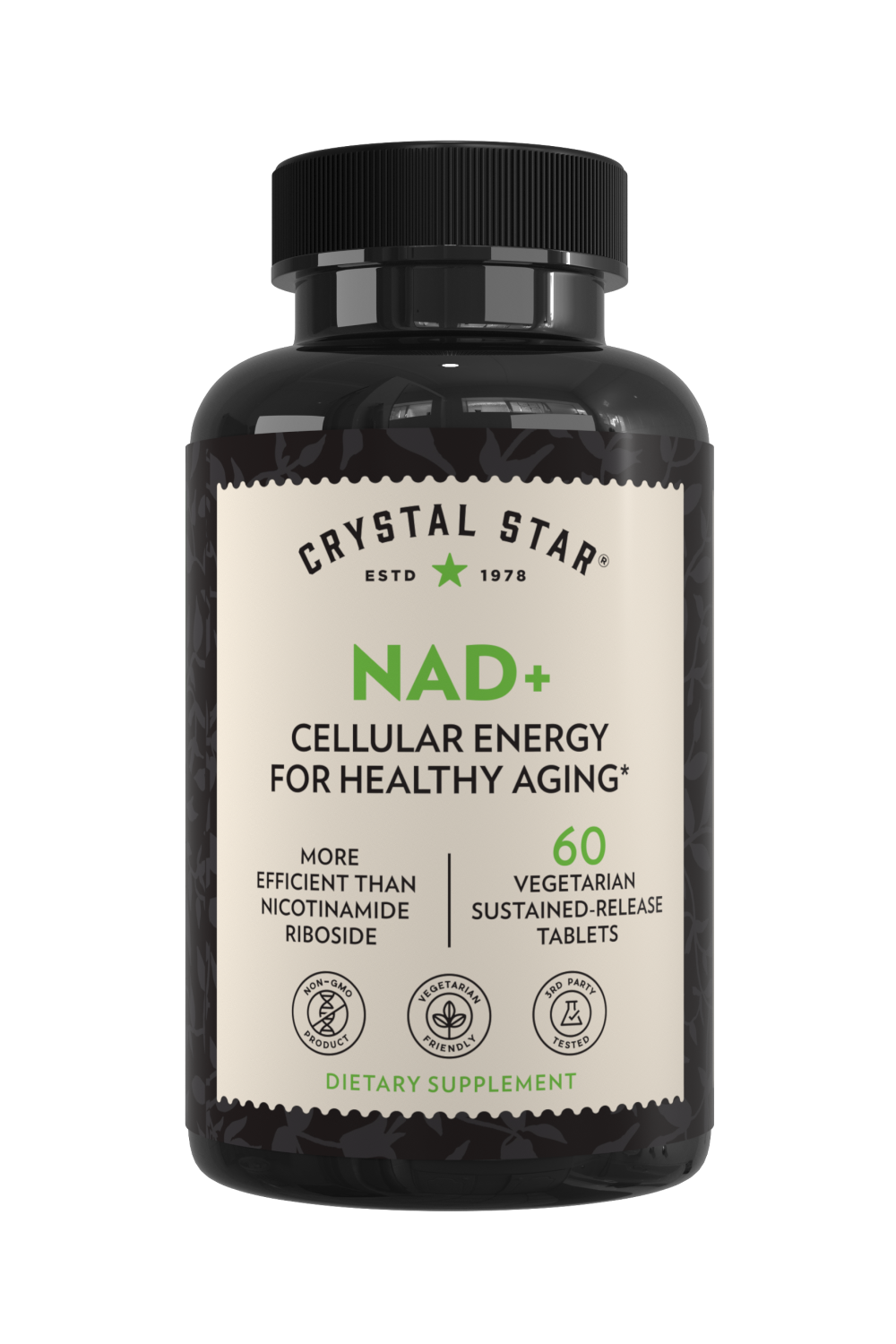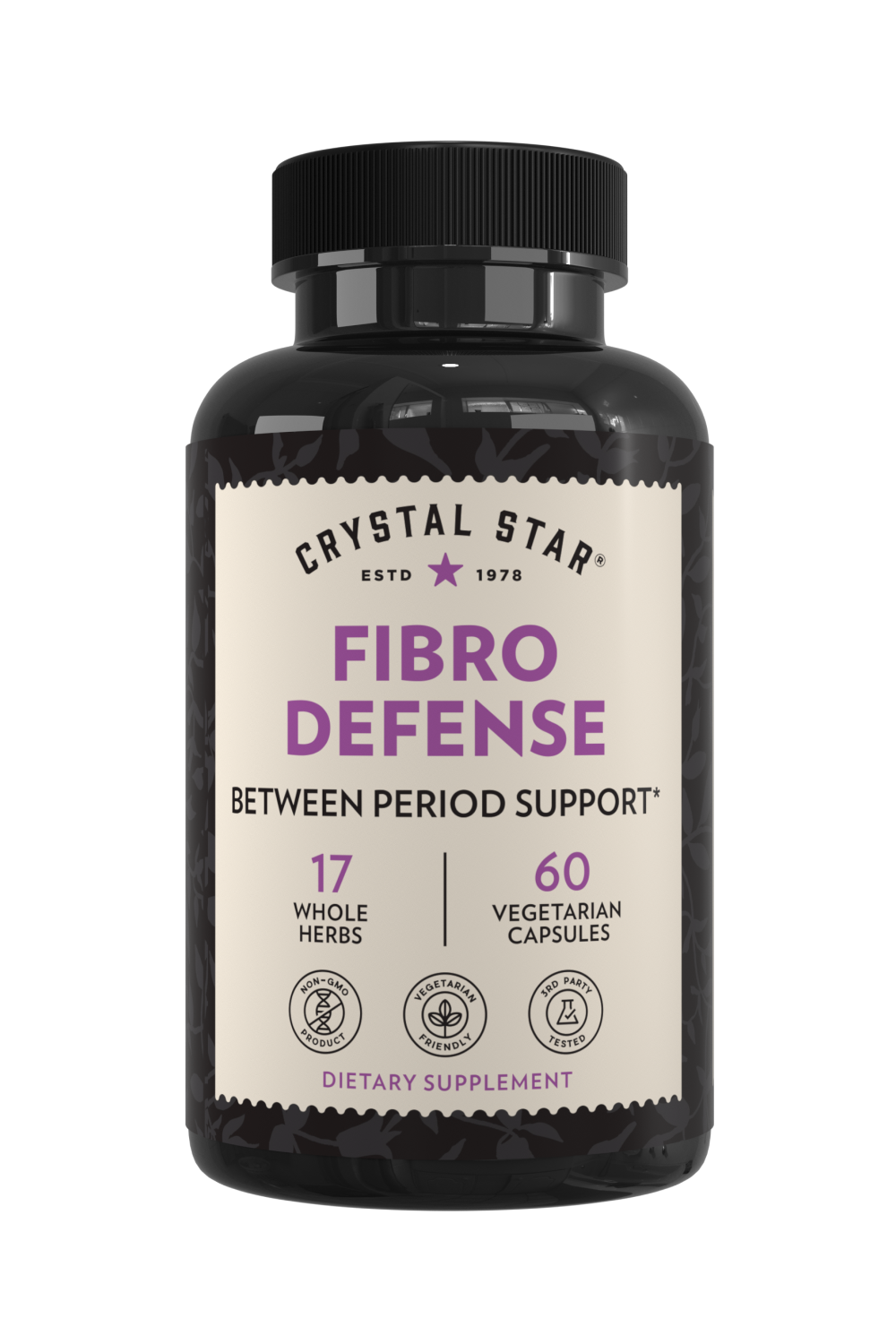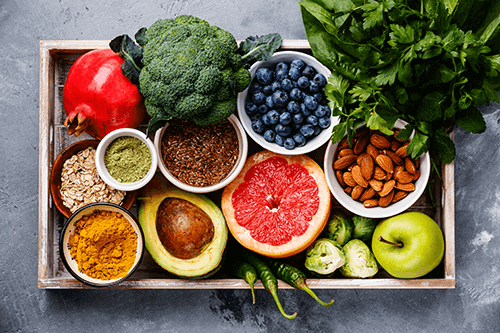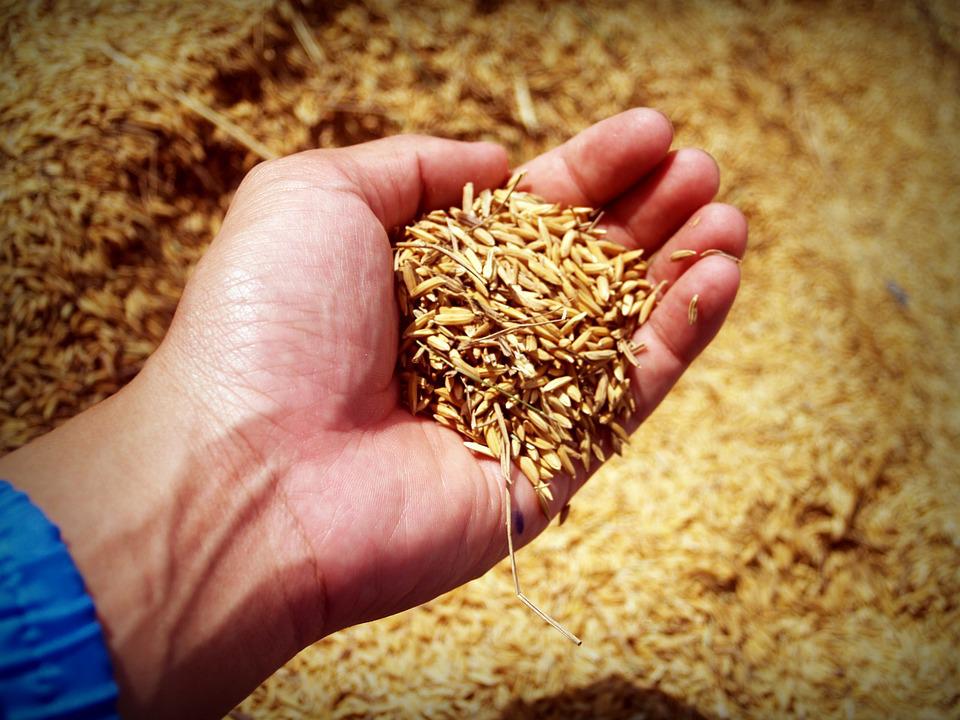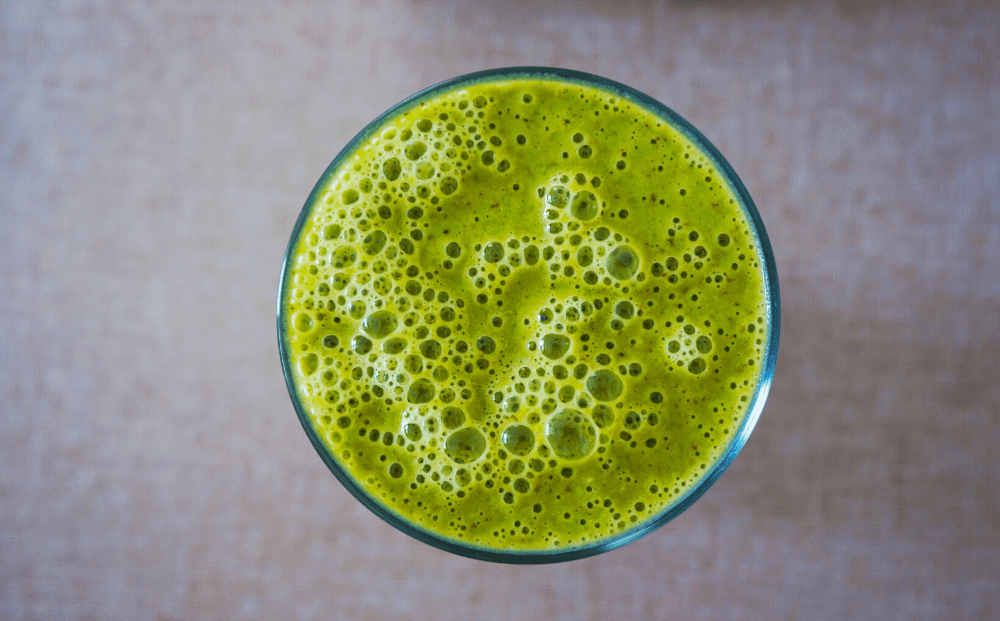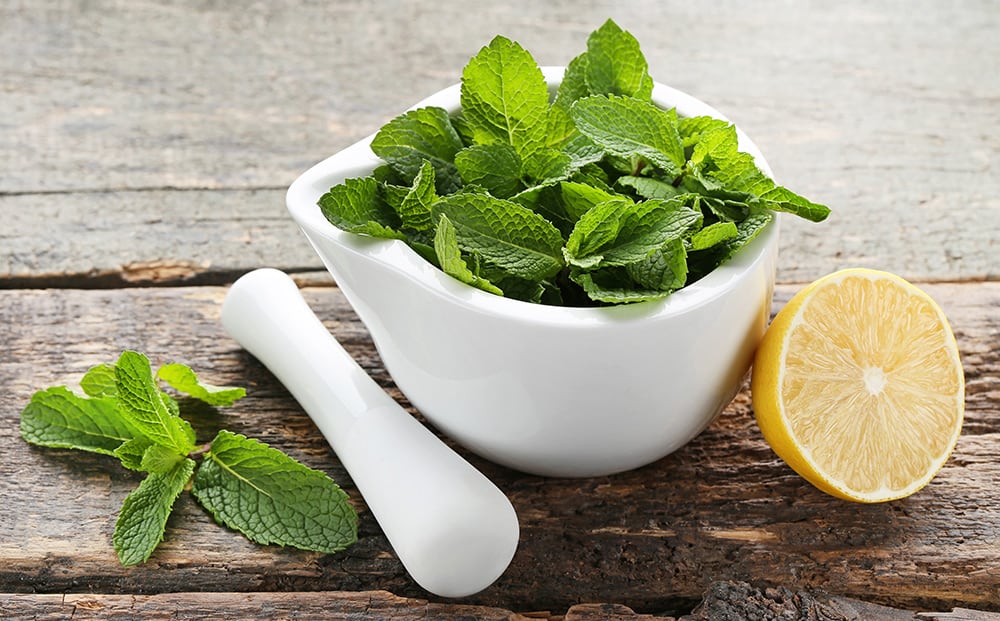
How To Use Lemon Balm To Help Manage Anxiety
If you have ever experienced anxiety, brain fog, or a nervous stomach ache, then lemon balm is the quick relief herbal ally you need. You’ll be both calmed and energized by its citrus-minty flavor. Whether you drink it hot or cold, your concentration will be heightened and memory sharpened.
The great thing about lemon balm is that you can feel the effects immediately but it has long-term benefits as well! Say bye to brain fog and anxiety. Say hello to lemon balm.
How To Identify Lemon Balm
You’ll probably smell lemon balm’s lovely lemon fragrance before you see it.

But despite its citrus smell, lemon balm is actually in the mint family. If you’re out on a stroll or hike and detect a hint of lemon on the breeze, look for:
- The classic mint-family squared stem
- Spade-shaped, slightly fuzzy leaves
- A shape very similar to catnip or spearmint
To tell lemon balm apart from catnip or spearmint, rub a leaf between your fingers and see if it releases a citrus fragrance to be sure it’s lemon balm.
Lemon balm grows virtually anywhere and is abundant in nature, so we don’t have to worry about over-harvesting it. It’s also incredibly easy to grow. If you find some on that wandering path where you were forest bathing, you can save some of the seedlings to keep the local flora alive, or you could find heirloom seeds at your plant nursery.
But a word to the wise: be sure to keep it in pots because it’s an intrusive plant that will invade your other plant beds.
How Do You Harvest Lemon Balm?
Lemon balm (Melissa officinalis) plants produce dainty white flowers in early summer to fall. It’s best to harvest lemon balm when it has several flower buds because that’s when the essential oils in the leaves are most potent.
When you are ready to harvest, be sure to cut each trimming just above a pair of leaves. If the bush has been there for a while, you can take larger portions of the plant. Just be sure to cut beneath the split at the base where two leaves grow out of the stem. This will ensure that the plant can keep growing up and out.

But if it’s a young plant or recently transplanted, it’s best to take as little as possible. That means removing no more than two-thirds of the plant.
If you don’t have a green thumb, you can always find organic, ethically sourced lemon balm in bulk online or in your local health food stores.
Lemon balm is an easy plant to keep in any home. Whether alive and thriving, or dried and stored away, it’s a gentle and generally safe herb that is helpful for a multitude of ailments.
What Are The Healing Properties of Lemon Balm?
Nutritionally speaking, lemon balm is an incredible source of antioxidants. The word “antioxidant” is being thrown around a lot in naturopathic health communities worldwide—but for good reason! Antioxidants prevent inflammation by binding to illness-causing free radicals that damage your cells—which then damages your tissues, organs, and systems.
The most notable chemical constituents in lemon balm are its essential oils, polyphenols, and tannins that work together to stimulate digestion and strengthen your gastrointestinal system when taken consistently over time.
This specific characteristic is important because studies have shown that proper digestion is a pivot point for the vitality of the rest of your body’s systems— particularly your immune and mental health.[1]
How does lemon balm support mental health? Why is lemon balm a go-to herb for nervous system health?
The secret is in that lemony scent. The volatile oils citral, citronellal, citronellol, and geraniol are responsible for the pleasant aroma of lemon balm and its healing benefits. These chemical compounds can help calm down the muscle tension and heightened senses (due to your fight-or-flight reflex).[2] This calming property is also why lemon balm is used specifically for indigestion that can come with anxious episodes.
This calming ability creates a ripple effect and heals up other pesky symptoms that may arise in cases of extended anxiety such as insomnia, heart palpitations, tension headaches, and inability to focus.[3] Lemon balm has shown promise as a brain restorative herb because it helps the body manage its response to stress and tension.

A recent study performed on a group of healthy adults has shown promise as a reliable herbal ally for concentration and memory.[
4] Researchers gave the test group a blend of lemon balm, rosemary, and gingko and tested their memory. They then compared the results against a placebo group.
Adults aged sixty or younger in the group given the herbal extracts were better able to recall a set of words than the placebo group.
A 2015 German study conducted on students has also shown significant promise for the millions of people with symptoms of ADHD.
[5] Researchers gave an extract of lemon balm and valerian twice a day to children ages six-to-eleven who did not have an ADHD diagnosis but who showed symptoms of it (primarily hyperactivity, concentration issues, and difficulty with impulse control).
Children who consistently took the herbal treatment for seven weeks showed significant improvement in symptoms, with the biggest improvement in distractibility.
Though this data is currently being peer-reviewed, it does offer hope for an alternative option for addressing symptoms associated with ADD or ADHD.
Does Lemon Balm Provide Long-Term Health Benefits?
As an herb that has an affinity for the nervous system, lemon balm is a go-to herb for anxiety and depression. Not only does it bring your stress response back into balance in the moment, it is known for its ability to support a healthy fight-or-flight response long-term. This adaptogenic characteristic deals with your hypothalamic–pituitary–adrenal axis—which is responsible for detecting harm and releasing the right hormones to keep you alive.
Though this amazing evolutionary feat is vital in truly dangerous situations like getting into a car accident (by way of quickening your reflexes), it slows or stops other vital systems in order to focus on survival.
Unfortunately, if your brain is in that keyed-up state for an extended period, your body starts to perceive that heightened state as normal. This change in your internal chemistry can disrupt your digestive system, immune response, and reproductive ability.[6]
Due to lemon balm’s nutritive properties and relaxing nature, it’s an incredible herbal ally for people prone to overthinking, getting frazzled, and falling into a spiral. It’s also prized for its ability to boost your energy and lift your mood.
How To Prepare Lemon Balm

It’s pretty gnarly what extended stress can do to your body. But as always, we can turn to the earth and its abundance of holistic medicine. Let’s look at some easy ways to incorporate lemon balm into our everyday lives.
- TEA
The easiest ways to have your daily dose of lemon balm is to make it into a tea!
The ratio is easy to remember:1 tablespoon of dried or chopped fresh lemon balm per eight fluid ounces. Allow the tea to steep for at least eight minutes for best results.
If you want it as a refreshing iced drink in the summertime, just add some fresh sprigs to a jug of cool water and allow to infuse for 30 minutes before serving.
- VINEGAR
You could also make Lemon Balm infused vinegar to dress salads. Simply add one cup of fresh chopped lemon balm to a jar and cover with raw apple cider vinegar. Allow to infuse for at least 3 weeks for best results.
- SYRUP
Having lemon balm syrup on hand is a great idea if you have little ones in your home. It’s a wonderful way to ensure that they love their healing remedies enough to take them regularly.
First, you make a strong herbal decoction by simmering one cup of lemon balm in four cups of water for 30 minutes. Then, strain out the leaves and add honey to taste.
Keep refrigerated for one month.
Any way you choose to take lemon balm, it’s important to remember that consistency is key. The more time you give your body to soak in the healing constituents and tweak their processes in a healthier direction, the better.
Conclusion
Lemon balm is a member of the mint family that is easy to find and easy to grow (maybe too easy—be sure to keep it in a pot if you grow it outside so it doesn’t overrun your garden).
It’s best to harvest lemon balm when it’s producing flower buds, since that’s when its properties are most potent.
There’s mounting scientific evidence supporting lemon balm as an aide to mental health. Some studies in particular show that it may help support calm and focus.
Lemon balm is easy to prepare as a tea, vinegar, or syrup, and poses little risk to healthy individuals. I recommend starting with 1 cup of tea, 1 tsp of the vinegar, or 1 Tbsp of the syrup per day. Since lemon balm is so safe, you can amp up your dosage to two or three servings per day if you don’t feel a difference right away.
It may take up to one month to see your desired results but lemon balm is strong herbal ally that will support you as often as you take advantage of its benefits.
Now that you know more about lemon balm, check out these products:
- Sharpens mental focus, supports memory and boosts brain health.*
- Promotes kidney health and helps ease occasional minor pain and discomfort.*
And if you’d like more information on the health benefits of herbs, check out Grow your own herbal medicine cabinet? Yes, you can.
Alyssa Humann, CH became a certified herbalist through the Bellebuono School of Herbal Medicine. She is a published essayist who’s been featured on HerbMentor and a copyeditor with Nick Polizzi at the Sacred Science. Alyssa is passionate about bringing plant medicine back to the people through education and relationships. She is a small business owner in Portland, OR where she makes rebalancing, custom holistic healing kits that fit each client’s unique situation and bioavailability.
[2] http://pennstatehershey.adam.com/content.aspx?productId=107&pid=33&gid=000158
[3] https://www.sciencedirect.com/science/article/pii/S2213422018300167?via%3Dihub
[4] https://www.sciencedirect.com/science/article/abs/pii/S0944711317301046?via%3Dihub
[5] https://www.nursingcenter.com/wkhlrp/Handlers/articleContent.pdf?key=pdf_00004650-201511000-00009
[6] https://www.apa.org/helpcenter/stress-body

